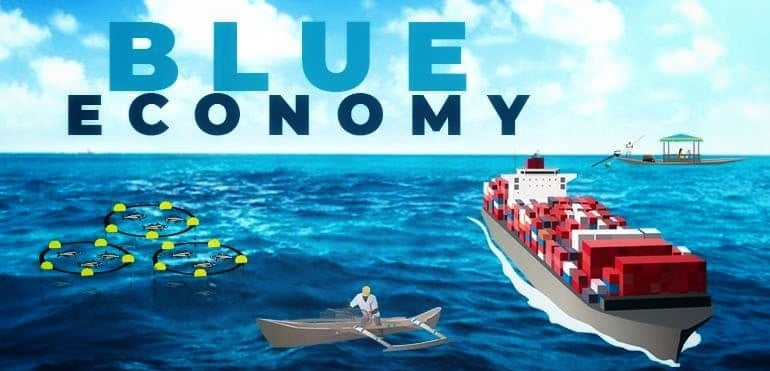Ghana sees enormous potential in its blue economy, but faces threats including piracy, illegal fishing, drug smuggling and human trafficking.
The new National Integrated Maritime Strategy (NIMS) aims to ensure that Ghana’s maritime domain will be safe and its blue economy thriving by 2040.
The strategy has been in the works since 2016. It was drafted after consultations with state agencies and departments; local private entities, including those with fisheries and environmental interests; commercial and non-commercial maritime actors; experts and international partners; among others.

It was developed with support from the Centre for Maritime Law and Security (CEMLAWS) and the United Nations Office on Drugs and Crime with funding from Denmark.
Rear Admiral Issah Yakubu, chief of the Ghana Naval Staff, said the integrated strategy was necessary due to the number of ministries, agencies and departments involved in the fisheries sector.
The goal is to strengthen Ghana’s framework of maritime governance; ensure the security of its maritime domain; protect the marine environment; promote research, awareness and knowledge-sharing; and develop regional and international cooperation, according to a report by Ghana Web.
Kofi Mbiah, a maritime law consultant, said political will is critical to the strategy’s success.
“This plan can be put in a glossy document with all the fine details, but if we don’t execute for the expected rational outcome, then it will be an exercise in futility,” Mbiah told Ghana Web.
While piracy has dropped dramatically throughout West Africa since 2020, the region remains a target for illegal, unreported and unregulated (IUU) fishing by large foreign industrial trawlers capable of catching far more fish than can artisanal canoes. Experts have linked IUU fishing to myriad other sea crimes.
An investigation by the Environmental Justice Foundation found that 90% of fishing vessels operating in Ghana are owned by Chinese companies, often operating through disguised front companies. Ghana loses $50 million a year through opaque arrangements with foreign companies, the foundation found.
The results of overfishing in Ghana have been catastrophic.
More than 100,000 fishermen and 11,000 canoes operate in the country, but average annual income has dropped by as much as 40% per artisanal canoe in the past 15 years, according to the foundation. Illegal fishing has also decimated fish stocks, causing prices to soar and driving food insecurity.
Godred Sowah Khartey, a fellow at CEMLAWS Africa, said he believes the strategy will effectively address sea crimes and help improve the livelihoods of Ghana’s coastal communities.
“Just as we identify the challenges emerging from ocean activities so do we identify its prospects,” Khartey told Ghana Web. “The NIMS wants to get the blue economy running. Because with a thriving blue economy, jobs are created, poverty is eliminated and crime such as piracy is reduced.”
Source: Defence Web

















